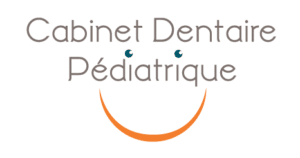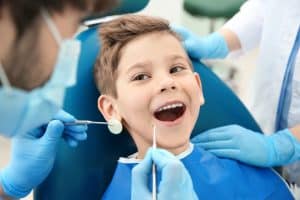In humans, dentition follows a certain chronology with temporary teeth that eventually fall out to make room for permanent teeth.
However, it can happen that the permanent tooth does not grow back after the baby tooth has fallen out. This phenomenon is called dental agenesis.
Let's discover the causes of this pathology and the treatments that exist.
The normal eruption of teeth
As a reminder, the temporary teeth, called milk teeth, appear in number of 20. They grow at about six to ten months for the lower jaw. The upper jaw takes seven to twelve months.
After the primary teeth fall out, the permanent teeth usually come out between the ages of six and thirteen. In all, 28 permanent teeth appear, followed by 32 with the wisdom teeth.
There may be a delay between the loss of the primary teeth and the eruption of the permanent teeth. However, if the parent notices that the permanent tooth does not grow back after the baby tooth has fallen out, a pedodontist should be consulted to check for dental agenesis.
Dental agenesis: definition
Dental agenesis is the absence of one or more permanent teeth. It is a genetic anomaly that is usually detected between the ages of six and ten, when the baby teeth fall out. The permanent teeth are then supposed to take their place.
When a baby tooth is found not to fall out or to fall out without being replaced, it is recommended that a pedodontist be consulted to make a diagnosis.
The different types of dental agenesis
Absence of wisdom teeth
This form of agenesis is the most common. The absence of one or more wisdom teeth affects about 20% of the population but it does not pose any problem and does not require any treatment.
Isolated dental agenesis
Also called point agenesis or hypodontia, agenesis is said to be isolated when the number of missing teeth is between one and six. The lower second premolar and the upper lateral incisor are the teeth most affected by agenesis.
Multiple dental agenesis
Oligodontia or multiple dental agenesis is characterized by the absence of more than six permanent teeth and other dental anomalies. It is a rare condition for which the dentist refers the patient to a genetic consultation to verify that there are no other anomalies.
Milk tooth that falls out and permanent tooth that does not grow back: possible causes
The genetic factor is the most important one when it comes to dental agenesis. Nevertheless, a person can carry the defective gene without developing agenesis.
Furthermore, according to some theories, a vitamin D deficiency in the fetus can prevent the formation of the dental germ and thus the appearance of one or more teeth.
In cases of oligodontia, the origin of the pathology is also genetic but the consequences extend to other organs. Multiple dental agenesis is then a symptom of a rare disease such as ectodermal dysplasia (the most common).
This disease also manifests itself through abnormalities of the hair, nails and sweat glands.
Finally, chemotherapy in children treated at ages when the dentition is developing can also cause multiple agenesis.
Treatments for dental agenesis
In children, implants cannot be placed because growth must be completed.
The baby tooth should be maintained as long as possible. If the primary tooth falls out, the orthodontist will temporize it by maintaining the space left by the fallen baby tooth with a space maintainer. This is done until the jaw reaches the end of its growth: the age varies from one individual to another.


